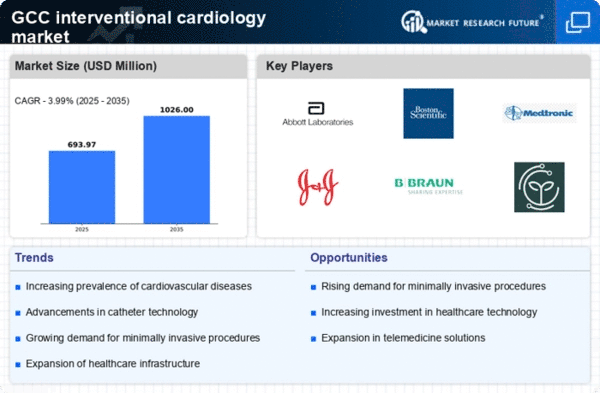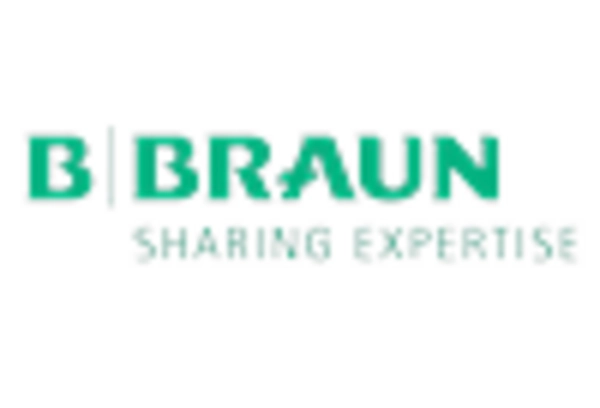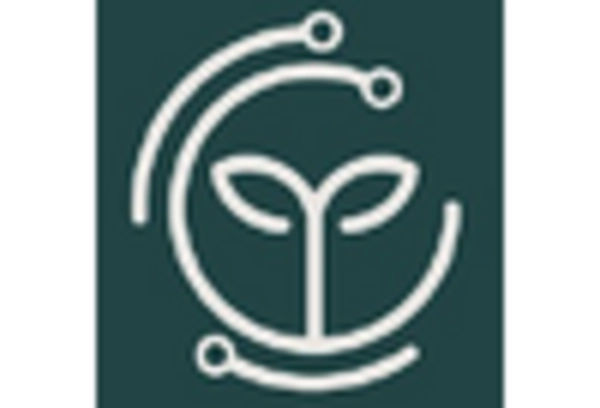Rising Aging Population
The aging population in the GCC region is a crucial driver for the interventional cardiology market. As individuals age, the incidence of cardiovascular diseases tends to increase, leading to a higher demand for interventional procedures. According to recent statistics, the population aged 65 and above in GCC countries is projected to grow significantly, potentially reaching 15% by 2030. This demographic shift necessitates advanced medical interventions, thereby propelling the interventional cardiology market. Healthcare providers are increasingly focusing on developing specialized services to cater to this aging demographic, which may include minimally invasive procedures and advanced cardiac care. The growing awareness of heart health among older adults further contributes to the demand for interventional cardiology services, indicating a robust market potential in the coming years.
Increasing Healthcare Expenditure
Healthcare expenditure in the GCC region has been on the rise, which serves as a significant driver for the interventional cardiology market. Governments are investing heavily in healthcare infrastructure, aiming to enhance the quality of care and expand access to advanced medical services. Recent reports indicate that healthcare spending in GCC countries is projected to reach approximately $100 billion by 2025. This increase in funding allows for the procurement of state-of-the-art medical equipment and the establishment of specialized cardiac care centers. Additionally, higher healthcare budgets facilitate training programs for healthcare professionals, ensuring they are equipped with the latest skills and knowledge in interventional cardiology. As a result, the interventional cardiology market is poised for growth, driven by improved healthcare resources and capabilities.
Expansion of Healthcare Facilities
The expansion of healthcare facilities across the GCC region is a notable driver for the interventional cardiology market. Governments and private investors are increasingly establishing specialized cardiac care centers to meet the rising demand for interventional procedures. Recent data indicates that the number of cardiac care facilities in the GCC has increased by approximately 20% over the past five years. This expansion not only enhances access to care but also fosters competition among healthcare providers, leading to improved service quality and patient outcomes. Additionally, the establishment of advanced cardiac care units allows for the integration of cutting-edge technologies and treatment protocols, further propelling the interventional cardiology market. As healthcare infrastructure continues to grow, the potential for market expansion remains substantial.
Rising Awareness of Cardiovascular Health
There is a growing awareness of cardiovascular health among the population in the GCC, which is positively influencing the interventional cardiology market. Public health campaigns and educational initiatives are increasingly focusing on the importance of heart health, risk factors, and preventive measures. This heightened awareness is leading to earlier diagnosis and treatment of cardiovascular conditions, thereby increasing the demand for interventional procedures. Surveys indicate that nearly 60% of individuals in the GCC are now more informed about cardiovascular diseases compared to previous years. As patients become more proactive in seeking medical advice and treatment, healthcare providers are responding by expanding their interventional cardiology services. This trend suggests a promising outlook for the market, as more individuals seek interventions to manage their cardiovascular health.
Technological Innovations in Cardiac Devices
Technological innovations play a pivotal role in shaping the interventional cardiology market. The introduction of advanced cardiac devices, such as drug-eluting stents and bioresorbable scaffolds, has revolutionized treatment options for patients with coronary artery disease. In the GCC region, the market for these devices is expected to witness substantial growth, with estimates suggesting a CAGR of around 8% over the next five years. Furthermore, the integration of digital health technologies, including telemedicine and remote monitoring, enhances patient management and follow-up care. These innovations not only improve patient outcomes but also streamline healthcare processes, making interventional cardiology procedures more efficient and accessible. As healthcare systems in the GCC continue to adopt these technologies, the interventional cardiology market is likely to expand significantly.
















